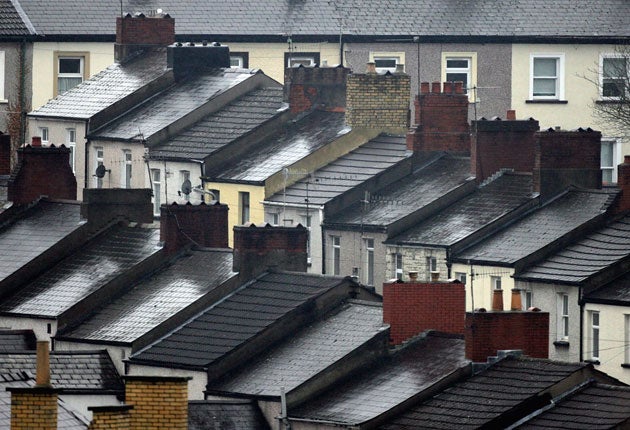Your support helps us to tell the story
From reproductive rights to climate change to Big Tech, The Independent is on the ground when the story is developing. Whether it's investigating the financials of Elon Musk's pro-Trump PAC or producing our latest documentary, 'The A Word', which shines a light on the American women fighting for reproductive rights, we know how important it is to parse out the facts from the messaging.
At such a critical moment in US history, we need reporters on the ground. Your donation allows us to keep sending journalists to speak to both sides of the story.
The Independent is trusted by Americans across the entire political spectrum. And unlike many other quality news outlets, we choose not to lock Americans out of our reporting and analysis with paywalls. We believe quality journalism should be available to everyone, paid for by those who can afford it.
Your support makes all the difference.House prices fell by 1.4% during January as the property market continued to come under pressure from Government spending cuts and the mortgage drought.
The drop left the average cost of a home just 0.5% higher than it was in January last year at £208,552, according to the Department for Communities and Local Government.
It was the eighth consecutive month during which the annual rate of house price inflation has fallen, and the latest rise was considerably lower than the 3.8% jump seen in December.
The three-month-on-three-month change, which is generally seen as a smoother indicator of market trends, also pointed to an acceleration in the rate at which prices are falling.
Property prices dropped by 0.4% during the three months to the end of January, compared with a 0.2% decline in the quarter to the end of October.
House prices are coming under pressure as potential buyers sit on their hands in the face of the looming Government spending cuts and economic uncertainty.
Those who do want to press ahead with a purchase are continuing to struggle to raise the mortgage finance they need.
Howard Archer, chief UK and European economist at IHS Global Insight, said: "The housing market will be pressurised over the coming months by high and likely-to-rise unemployment, negative real income growth, the increasing fiscal squeeze, very low consumer confidence, and ongoing difficulties in getting a mortgage, particularly for first-time buyers.
"We suspect that house prices will fall by around 5% in 2011 and end up losing around 10% from the peak levels seen in the first half of 2010."
Annual house price growth is now negative in seven regions of the UK, with Northern Ireland continuing to see the biggest year-on-year drop of 14.1%, followed by Yorkshire and Humberside at 4.6%, and Scotland and the West Midlands, which both recorded a 3.2% decline.
Growth was strongest in the East and London, with prices 4% and 3.7% higher respectively than they were in January last year.
But the recent price falls seem to have done little to help struggling first-time buyers get on to the property ladder, with the average cost of a home bought by this group increasing by 1.5% during the past year, while the price of properties purchased by owner-occupiers has edged up by just 0.1%.
There has also been an 8.6% jump in the cost of new homes during the 12 months to the end of January, although the figure may have been distorted by the low volume of new-build properties that came on to the market during the period.
The number of new properties built fell to its lowest peacetime level since 1923 during 2010.

Join our commenting forum
Join thought-provoking conversations, follow other Independent readers and see their replies
0Comments